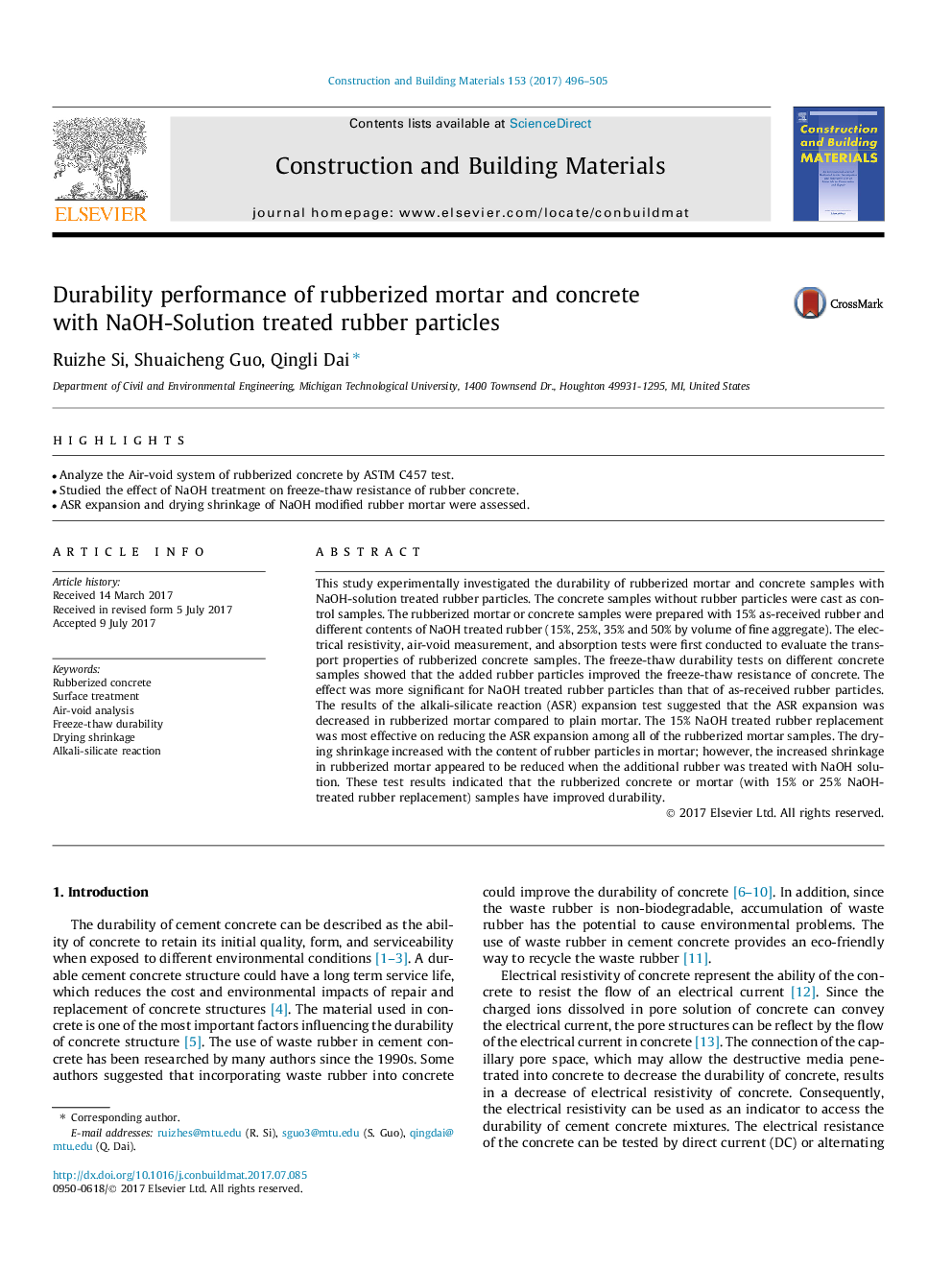| Article ID | Journal | Published Year | Pages | File Type |
|---|---|---|---|---|
| 4912995 | Construction and Building Materials | 2017 | 10 Pages |
Abstract
This study experimentally investigated the durability of rubberized mortar and concrete samples with NaOH-solution treated rubber particles. The concrete samples without rubber particles were cast as control samples. The rubberized mortar or concrete samples were prepared with 15% as-received rubber and different contents of NaOH treated rubber (15%, 25%, 35% and 50% by volume of fine aggregate). The electrical resistivity, air-void measurement, and absorption tests were first conducted to evaluate the transport properties of rubberized concrete samples. The freeze-thaw durability tests on different concrete samples showed that the added rubber particles improved the freeze-thaw resistance of concrete. The effect was more significant for NaOH treated rubber particles than that of as-received rubber particles. The results of the alkali-silicate reaction (ASR) expansion test suggested that the ASR expansion was decreased in rubberized mortar compared to plain mortar. The 15% NaOH treated rubber replacement was most effective on reducing the ASR expansion among all of the rubberized mortar samples. The drying shrinkage increased with the content of rubber particles in mortar; however, the increased shrinkage in rubberized mortar appeared to be reduced when the additional rubber was treated with NaOH solution. These test results indicated that the rubberized concrete or mortar (with 15% or 25% NaOH-treated rubber replacement) samples have improved durability.
Related Topics
Physical Sciences and Engineering
Engineering
Civil and Structural Engineering
Authors
Ruizhe Si, Shuaicheng Guo, Qingli Dai,
